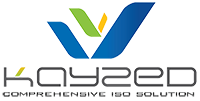ISO Industry Trends in 2024
- January 22, 2016
- Posted by: admin
- Categories: Business plans, Uncategorized

Trend 1: Digital Transformation and ISO Standards
The adoption of digital technologies is accelerating, and ISO standards are following suit. ISO/IEC 27001 (ISMS) for information security and ISO 20000-1:2018 (ITSMS) for IT service management are gaining prominence as organizations prioritize cybersecurity and efficient & prominent IT operations. The integration of digital processes and data security is a top most priority to the industry these days also the governing bodies are spreading awareness about this on mass levels.
Trend 2: Personal Data Protection
With increased concerns about data privacy, ISO 27701:2019 (Security techniques) for privacy information management is becoming a critical standard. Organizations are seeking ways to protect personal data in compliance with evolving regulations.
Trend 3: Remote Audits and Virtual Assessments
The COVID-19 pandemic has accelerated the acceptance of remote audits. ISO/IEC 27001:2022 (ISMS), ISO 20000-1:2018(ITSMS), ISO 22301:2019(BCMS), and other standards are embracing remote assessment methods. This trend is likely to continue, offering convenience and flexibility to organizations.
Trend 4: Add ISO 21001:2018 (EOMS) – Changes in Education Management System after COVID
In 2024, ISO 21001:2018(EOMS), also known as the Education Organization Management System (EOMS), reflects evolving trends in education Post-COVID. This standard signifies changes in the Education Management System, emphasizing adaptability and resilience. Post-pandemic, educational institutions are prioritizing flexible learning models, digital integration, and health protocols. ISO 21001:2018 (EOMS) addresses these shifts, promoting a comprehensive approach to education management. It underscores the need for institutions to navigate challenges efficiently, fostering a dynamic learning environment in the wake of global disruptions, ultimately enhancing the quality and effectiveness of education systems worldwide.
Trend 5: Sustainable Business Practices
Environmental responsibility is at the forefront. ISO 14001:2015(EMS) for environmental management system is witnessing increased adoption as companies commit to sustainable practices. The circular economy concept, reducing waste, carbon emission and carbon neutrality are becoming key considerations for ISO certification.
Trend 6: ISO 50001:2018 (EnMS) –Sustainable Energy Management
In 2024, ISO 50001:2018, the Energy Management System (EnMS) standard, reflects prevailing trends in sustainable energy management. As organizations globally intensify efforts to address climate change, ISO 50001:2018(EnMS) becomes pivotal. It emphasizes optimizing energy performance, reducing carbon footprints, and enhancing overall energy efficiency. This standard encourages businesses to adopt systematic approaches to monitor, manage, and continually improve energy usage. With a focus on sustainability, ISO 50001:2018(EnMS) aligns with the growing imperative for industries to contribute to a greener future. It guides organizations in fostering responsible energy practices, mitigating environmental impact, and promoting a culture of sustainable energy management.
Trend 7: Global Supply Chain Resilience
Supply chain disruptions have led to a focus on supply chain resilience. ISO 28000:2022 (Security and resilience) for supply chain security management is gaining importance. Organizations are looking to ensure the security and reliability of their supply chains.
Trend 8: Certification for Small and Medium-sized Enterprises (SMEs)
ISO certification is no longer exclusive to large enterprises. ISO is adapting to accommodate SMEs, making certification more accessible and affordable. Just like Indian Govt. is promoting awareness of ZED (Zero Defect Zero Effect) scheme PAN India which is an effective sustainable scheme of certifications for MSME’s registered in India under Udyam/ Skill India and other affiliations by govt.
Trend 9: Industry-specific Standards
Various industries are developing specialized ISO standards to meet unique requirements. For example, ISO 20400:2017 (Sustainable procurement Guidance) for sustainable procurement is becoming important for organizations looking to address sustainability in their supply chain.
Trend 10: Increased Automation in Auditing
Automation and AI are making auditing more efficient. ISO/TS 16949:2016 International Automotive Task Force (IATF). ISO/TS 16949:2016 is a technical specification developed by the International Automotive Task Force (IATF) for the automotive industry. Originally created in 1999, it aims to harmonize assessment practices within the sector. The standard integrates ISO 9001 with additional automotive-specific requirements, emphasizing a quality management system for continual improvement. Notable updates in IATF 16949:2016 include deviations (waivers), a new business hold process, and the inclusion of CQI-14 (Warranty) requirements [1][4][5]. ISO 19011 guidelines for auditing management systems are being updated to include best practices for automation
- Growth through innovation/creativity:
Rather than be constrained by ideas for new products, services and new markets coming from just a few people, a Thinking Corporation can tap into the employees. - Increased profits:
The corporation will experience an increase in profits due to savings in operating costs as well as sales from new products, services and ventures.
- Higher business values:
The link between profits and business value means that the moment a corporation creates a new sustainable level of profit, the business value is adjusted accordingly. - Lower staff turnover:
This, combined with the culture that must exist for innovation and creativity to flourish, means that new employees will be attracted to the organization.







